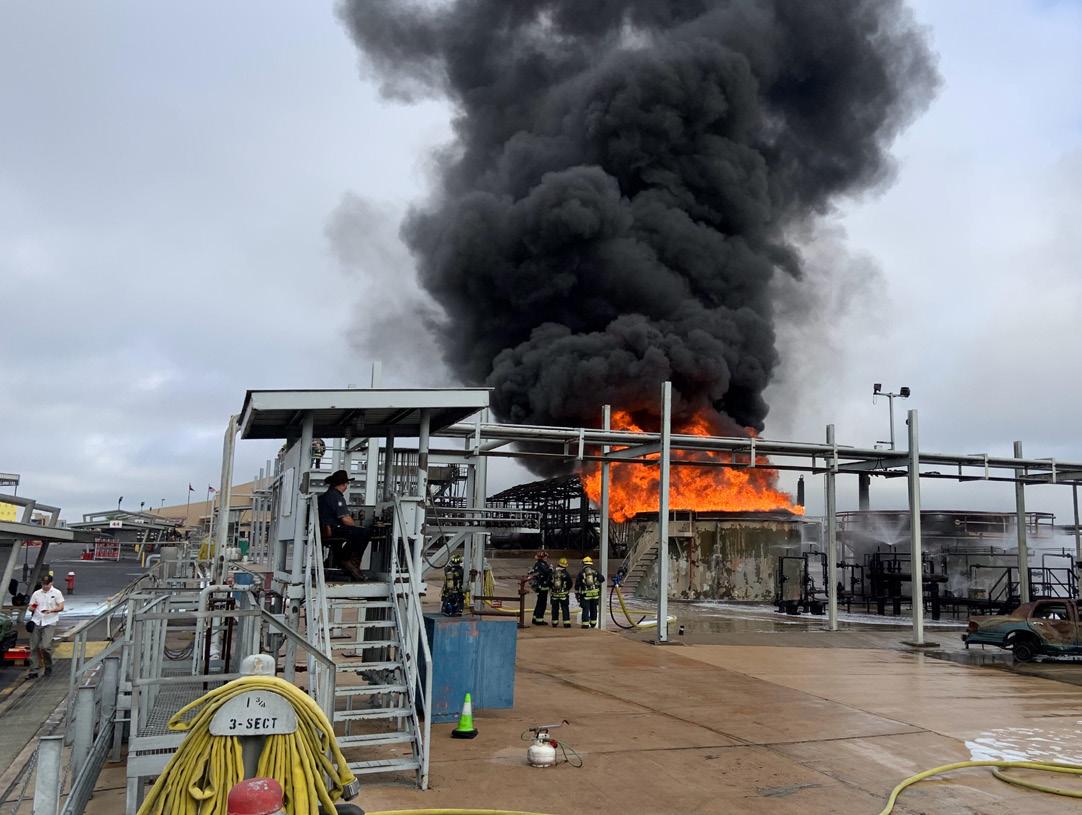
1 minute read
FPAAC 2022 MARINE FIRE COMMAND EXERCISE

The annual FPAAC Marine Fire Command Exercise was held on October 14th at the Clean Rivers Cooperative Training Facility in Portland, OR. In all, 30 participants attended this training event which focused on a containership and Port of Portland’s Terminal 6. The day began with a presentation by retired Vancouver Fire Captain Jeff Johnson, who also has a background in the salvage and marine firefighting industry, before moving to a series of increasingly challenging scenarios for participants to work through ranging from an inbound vessel with a Class A fire, to a “major ship fire” which required participants to create the proper ICS structure and to plan out for a multiple operational period response.
Advertisement
The incident commander (IC) is the key to the plan’s success. The IC must understand all training levels and how to use each level in mitigating a largescale incident. By recognizing present and potential hazards, the IC can support the mitigating strategies by assigning tasks appropriately, delegating responsibilities based on the incident size and complexity. We would like to thank Jeff Johnson and USCG LTJG Connor Michelli for adding extra elements of knowledge and credibility to this well received exercise.
SPECIALIZED TECHNICIAN LEVEL TRAINING – TEEX
MFSA was provided the opportunity to send 30 shipboard firefighting technicians to a specialized live-fire training in Texas at the Texas A&M Engineering Extension Service, or “TEEX”. This incredible facility offers training programs to public safety workers around the world and was the site of this year’s 3Q Technician Level Training from November 1st – 3rd. With over 130 training stations, 22 live-fire props, full-scale buildings, tanks, and a mockup ship and superstructure prop, TEEX is the largest training facility of its type in the United States.
Participants worked as teams to extinguish Class A fires in the mockup vessel’s accommodation space, utilized multiple hose lines and dry-chemical extinguishers to extinguish three-dimensional fires, and worked as teams to utilize multiple hose line strategies to extinguish Class B fires in more complicated evolutions. Specialized training courses such as this provide a tremendous amount of value for our members, and because of that, we continue to improve our efforts as it relates to an efficient implementation of coordinated shipboard fire response.
FPAAC Technician Level Trainings are offered quarterly and consist of four eight-hour handson training modules. This can be delivered in a classroom setting, though it is usually more focused on the use of specialty equipment. Ultimately, the curriculum is determined and administered by the FPAAC Training Coordinator.










